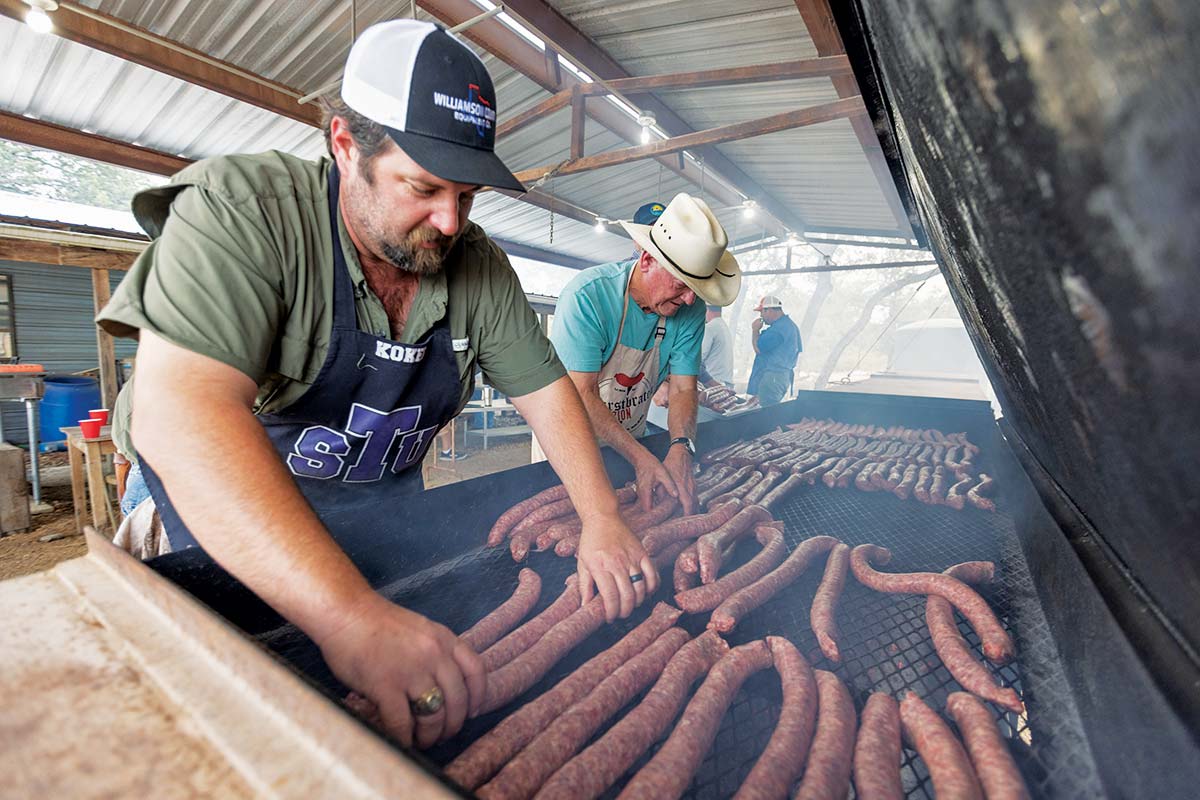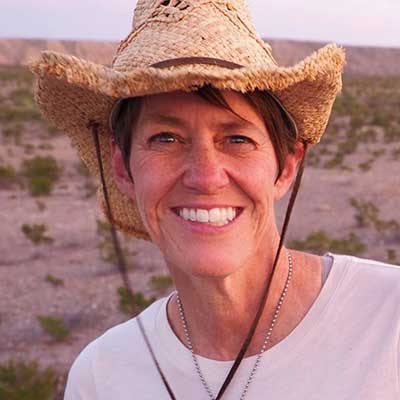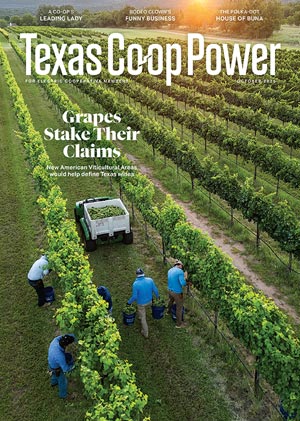Half a dozen apron-clad men gather around a 40-foot smoke pit behind Zion Lutheran Church in Walburg, checking on the homemade sausage sizzling on its metal racks.
At a long table nearby, more volunteers slice links and load them into tubs to be carried inside and arranged in plastic containers. In front of the church, vehicles line up at a makeshift drive-thru, their drivers buying the sausage, sweet potatoes, sauerkraut and green beans for $15 a plate.
On the first Monday of November for more than half a century, this tiny unincorporated community about 40 miles north of Austin has come together for the Wurstbraten sausage supper.
The event began in 1971 to raise money for new carpeting in the church. The congregation’s women’s group came up with the idea of a sausage supper to honor the community’s German heritage.
“We butchered a hog, and back then farmers still had smokehouses,” says Ethel Mickan, who turns 90 this month. She served on the first organizing committee and has participated in every Wurstbraten since.
Four hundred people showed up that first year, paying just $2.25 for adults and $1.75 for children. The event raised enough to recarpet the church and then some.
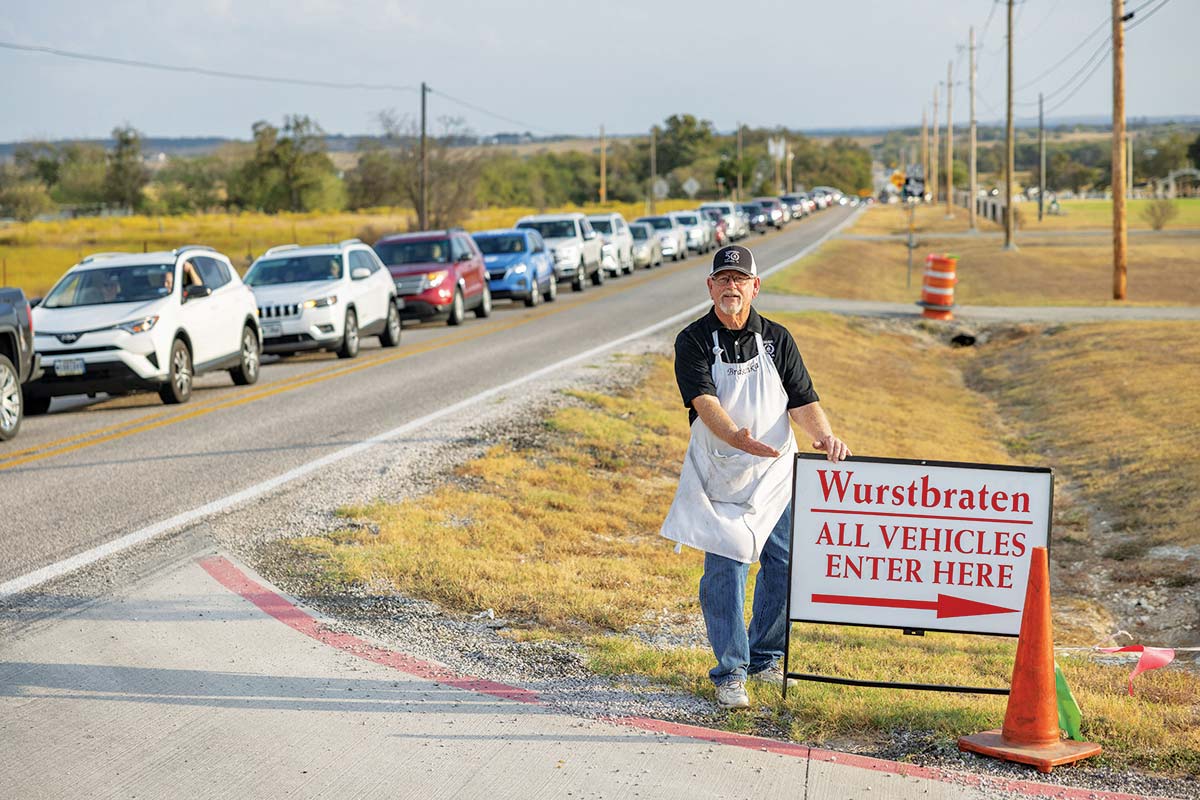
Dan Cowan as cars line up for Wurstbraten in 2024.
Julia Robinson
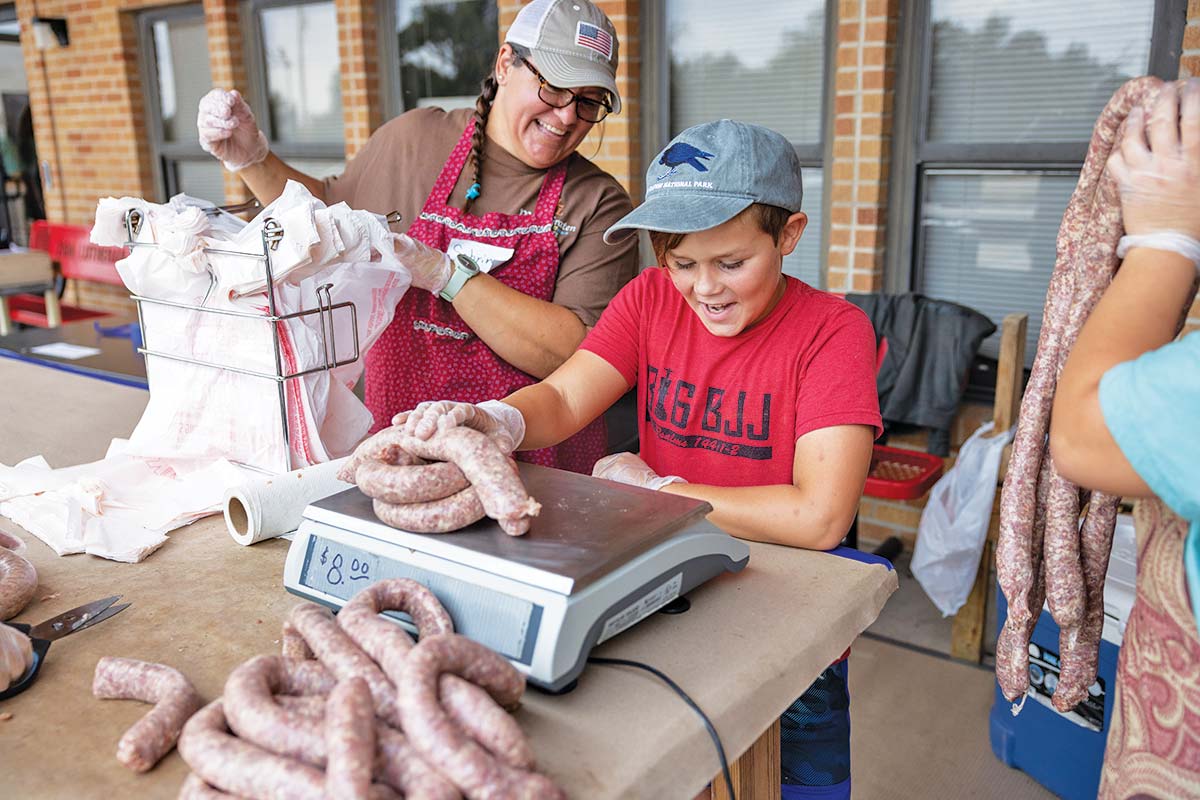
Sabrina Jansak-Noble and son Elias Jansak-Noble weigh bulk sausage.
Julia Robinson
That first year, a transformer blew out, and church members had to call the electric company. “Everybody stayed, and we kept on with the meal,” Mickan says. Another year, torrential rains forced organizers to move the parking area down the road, where it wasn’t so muddy.
Depending on whom you ask, organizers settled on the first Monday in November either because they wanted to do it in cooler weather, before deer season, or because Monday night wouldn’t interfere with business at restaurants in the area.
“In those days there were only two or three restaurants in Georgetown, and they didn’t like it when churches had events on Fridays, Saturdays or Sundays because that took away from business,” Mickan says.
Over the years, Wurstbraten has grown into the quintessential community gathering. Most of the proceeds are used to fund church projects, but about 10% is donated to food banks and other nonprofit organizations in nearby rural areas.
“The sausage is wonderful, and the meal is absolutely fabulous, but the biggest blessing of all is to see your friends,” says Dan Cowan, who since 2021 has served as the braška, a Wendish word meaning leader of the feast.
Mickan agrees.
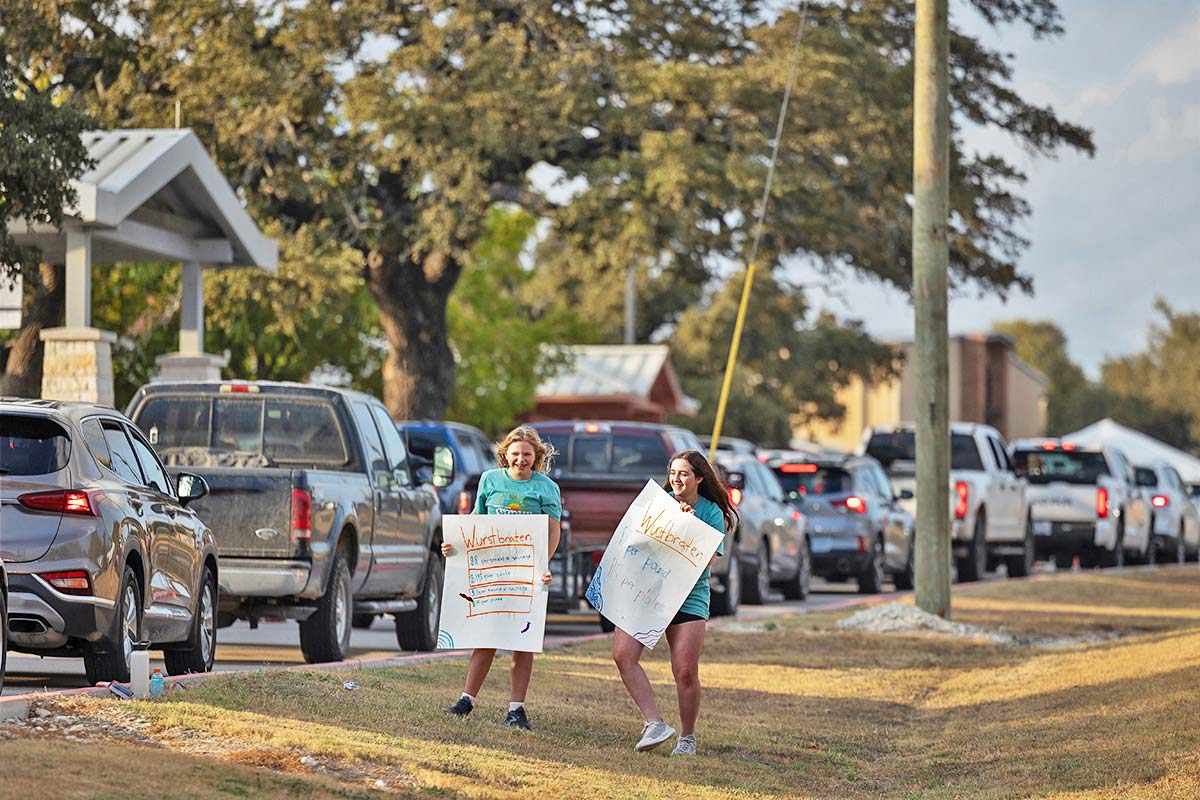
Youngsters show the prices.
Julia Robinson
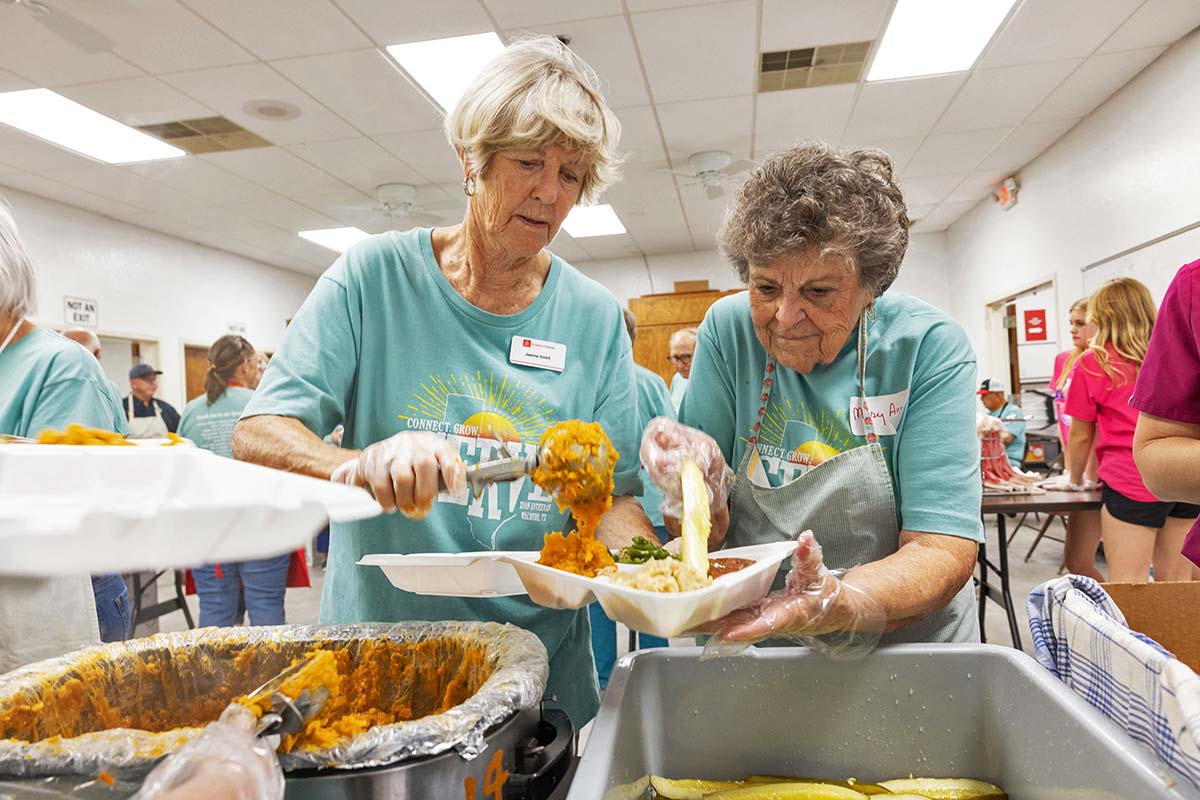
Jeanne Smith, left, and Mary Ann Brown prepare to-go orders.
Julia Robinson
“I think the main thing is that we bring people together that don’t get to see each other but once in a blue moon,” she says.
At last year’s 52nd annual Wurstbraten (the 2020 event was canceled due to the pandemic), volunteers prepared 10,500 pounds of sausage—some of it to sell by the pound, plus enough to make about 3,000 meals for pickup.
“It takes us five days and more than 300 people to pull this off, and it’s all volunteer,” Cowan says.
Several days before the event, organizers buy thousands of pounds of pork and beef, plus 100 pounds of black pepper, and 300 pounds of salt. They start making the sausage early Saturday, then smoke it overnight. Sunday, they prepare side dishes and sell some of the uncooked links by the pound.
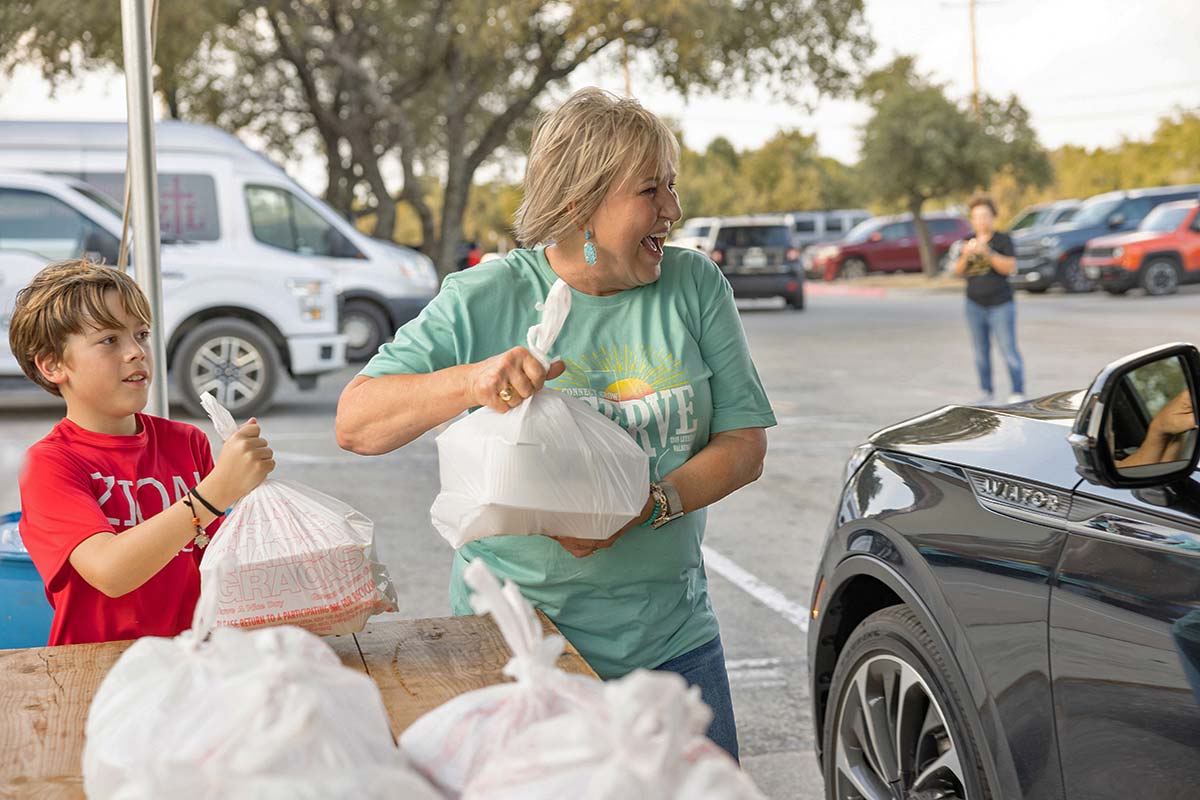
Susan Holstrom passes along good cheer and another to-go order.
Julia Robinson
“It’s a pretty mild sausage,” Cowan says. “I think part of the secret is that we smoke it for about 12 hours. It’s stuff your grandmother would be proud of.”
By 4 p.m. Monday of the 2024 event, two lines of vehicles inch their way toward the pickup area as constables direct traffic. By 5 p.m. cars stretch for a mile, and the wait is more than 30 minutes. Volunteers dash back and forth, taking orders and delivering containers of food through open vehicle windows.
“I put some in the freezer and use it for the whole year,” says Nina Frias of Jarrell, who has come with her mother to pick up food. “It’s hometown, it’s sausage—and oh, it’s magnificent.”
As Frias motors away, more cars approach. Organizers say their goal is to run out of food, but that never quite happens. There’s always just enough sausage to feed everyone who wants some.
“It’s kind of like a miracle,” Cowan says.
